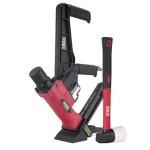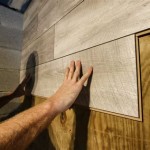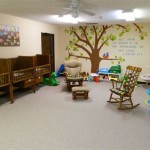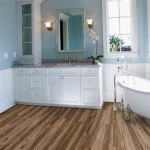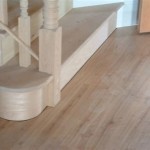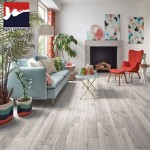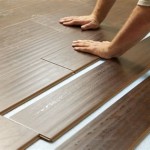Harris Wood Flooring: A Deep Dive into Maple Options
Harris Wood Flooring, a reputable name in the flooring industry, offers a diverse selection of hardwood flooring options. Among these, maple stands out as a popular choice for its durability, aesthetic appeal, and versatility. This article provides a comprehensive overview of Harris Wood Flooring's maple offerings, focusing on the characteristics, benefits, and considerations associated with choosing maple for residential and commercial spaces.
Understanding the specific attributes of maple hardwood is crucial for making an informed decision. Maple is a typically light-colored hardwood, characterized by a fine, uniform grain pattern. The color ranges from creamy white to light reddish-brown, making it a neutral base that complements various interior design styles. The hardness of maple, as measured by the Janka hardness scale, places it among the more durable domestic hardwoods, making it suitable for high-traffic areas. The closed grain structure of maple also contributes to its smooth surface, which is relatively easy to clean and maintain.
Harris Wood Flooring leverages these natural qualities of maple to produce a range of flooring products designed to meet diverse consumer needs and preferences. These include solid hardwood planks, engineered hardwood planks, and various finishes that enhance the natural beauty of the wood while providing protection against wear and tear. The company's commitment to sustainable harvesting practices ensures that its maple flooring products are both aesthetically pleasing and environmentally responsible.
The Appeal of Maple: Aesthetics and Versatility
One of the primary reasons for the popularity of maple flooring is its visual appeal. The light, neutral color palette of maple creates a bright and airy atmosphere in any room. This makes it an excellent choice for spaces where natural light is limited or where a minimalist aesthetic is desired. Furthermore, the subtle grain patterns of maple allow it to blend seamlessly with a wide range of furniture styles, wall colors, and decorative accents.
Harris Wood Flooring offers maple in various grades, each with its unique appearance. Clear grade maple exhibits minimal knots and imperfections, resulting in a very uniform and sophisticated look. Select grade maple allows for slightly more variation in color and grain, adding a touch of character while maintaining a relatively clean aesthetic. Common grade maple, also referred to as rustic grade, features more pronounced knots, mineral streaks, and color variations, creating a more natural and textured appearance. The choice of grade depends on the desired aesthetic and the overall design scheme of the space.
Beyond its natural beauty, maple flooring is also highly versatile in terms of finishing options. Harris Wood Flooring offers maple with a variety of stains and finishes, allowing homeowners and designers to customize the look of their floors to match their specific preferences. Light stains can further enhance the natural brightness of the maple, while darker stains can create a more dramatic and sophisticated effect. The company also offers various sheen levels, ranging from matte to high-gloss, which can further influence the overall appearance and feel of the floor.
The smooth surface of maple also makes it an excellent canvas for custom patterns and designs. Harris Wood Flooring can create custom inlays, borders, and medallions using maple, allowing for the creation of truly unique and personalized flooring solutions. This level of customization makes maple an ideal choice for those seeking to create a distinctive and memorable space.
Durability and Maintenance Considerations for Maple Floors
The inherent hardness of maple makes it a durable flooring option, capable of withstanding the rigors of everyday life. However, like all hardwood floors, maple is susceptible to scratches, dents, and moisture damage if not properly cared for. Understanding the specific maintenance requirements of maple flooring is essential for ensuring its longevity and preserving its beauty.
Harris Wood Flooring typically applies a protective finish to its maple flooring products, which helps to resist scratches, stains, and wear. However, it is still important to take precautions to prevent damage. Placing rugs in high-traffic areas, such as entryways and hallways, can help to reduce wear and tear. Using furniture pads under chair legs and other heavy objects can prevent scratches and dents. Regularly sweeping or vacuuming the floor to remove dirt and debris can also help to maintain its appearance and prevent scratches.
Moisture is a significant concern for hardwood floors, including maple. Excessive moisture can cause the wood to swell, warp, or even rot. It is important to promptly clean up any spills and avoid using excessive water when cleaning the floor. Harris Wood Flooring recommends using a damp mop and a pH-neutral cleaner specifically designed for hardwood floors. Steam mops should be avoided, as they can introduce excessive moisture into the wood. Maintaining a consistent humidity level in the home can also help to prevent moisture-related problems.
While maple is a relatively stable hardwood, it can still be affected by changes in temperature and humidity. Installing maple flooring in areas with extreme temperature fluctuations or high humidity levels is generally not recommended. If installing maple flooring in a basement, it is important to ensure that the space is properly insulated and that a moisture barrier is in place to prevent moisture from seeping into the wood. Engineered maple flooring, which consists of a thin layer of maple veneer bonded to a plywood or composite core, tends to be more dimensionally stable than solid maple flooring and may be a better choice for areas with fluctuating humidity levels.
Solid vs. Engineered Maple Flooring: Making the Right Choice
Harris Wood Flooring offers both solid and engineered maple flooring options, each with its own advantages and disadvantages. Understanding the differences between these two types of flooring is crucial for selecting the best option for a particular application.
Solid maple flooring consists of planks made entirely of solid maple wood. This type of flooring is known for its durability and longevity. It can be sanded and refinished multiple times, allowing it to be restored to its original beauty even after years of wear and tear. Solid maple flooring is typically installed using nails or staples and is best suited for installation on or above grade, where moisture levels are relatively stable. It is generally not recommended for installation below grade or in areas with high humidity levels.
Engineered maple flooring, on the other hand, consists of a thin layer of maple veneer bonded to a plywood or composite core. This construction provides enhanced dimensional stability compared to solid maple flooring, making it less susceptible to warping, cupping, or gapping due to changes in temperature and humidity. Engineered maple flooring can be installed in a variety of ways, including gluing, nailing, stapling, or floating. It is often a better choice for installation below grade or in areas with fluctuating humidity levels. While engineered maple flooring can be sanded and refinished, the number of times it can be sanded is limited by the thickness of the maple veneer.
The choice between solid and engineered maple flooring depends on a variety of factors, including the location of the installation, the subfloor type, the budget, and the desired aesthetic. Solid maple flooring is generally more expensive than engineered maple flooring, but it offers greater longevity and the ability to be refinished multiple times. Engineered maple flooring is more versatile in terms of installation options and is less susceptible to moisture damage, making it a good choice for basements and other potentially damp areas.
Ultimately, selecting the right type of Harris Wood Flooring maple product requires careful consideration of the specific needs and requirements of the space. Consulting with a flooring professional can provide valuable insights and guidance in making the best choice for long-term satisfaction.

Harris Wood Floors Aspen Vintage Maple Monarch

Cottage Maple Natural By Harris Wood Decatur Al Superior Carpets Floor Coverings Inc

Harris Wood Floors Wynwood Maple Natural

Harris Wood Floors Highlands Maple Saddle

Harris Wood Floors Americana Escape Mountains Bighorn

Harris One Colonial Hardwood He1031 By Wood Floorings

Harris Woods Hardwood Flooring One 5 X Random Vintage Maple Smokey Grey He1601 The Noble Floors Whole Tampa Bay

The American Hardwood Information Center Floor Colors Light Floors Flooring Trends

Traditions Springloc Natural Hardwood He2530hk48 By Harris Wood Floorings

Hardwood Flooring Trends Floor Installation
Related Posts


